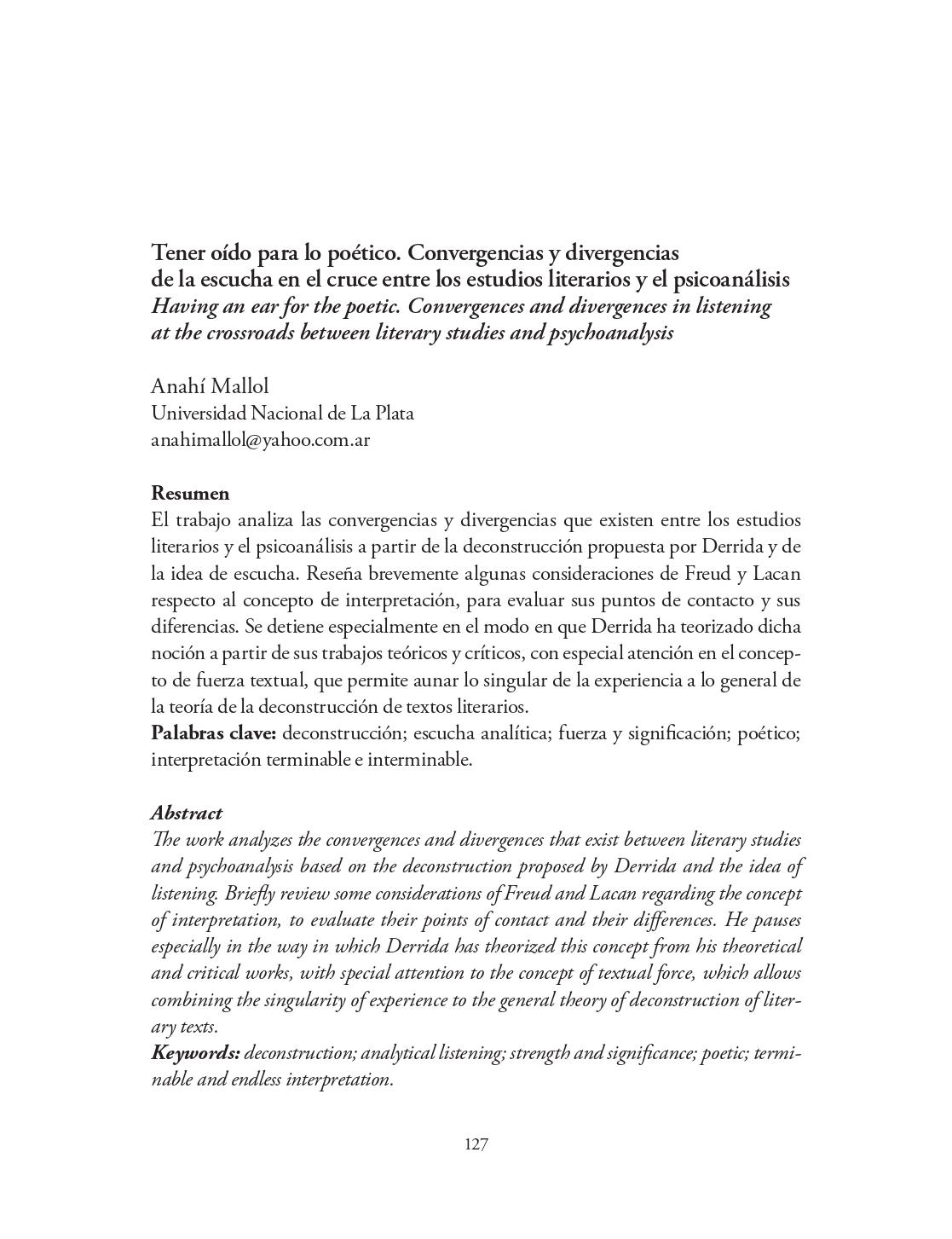Abstract
The work analyzes the convergences and divergences that exist between literary studies and psychoanalysis based on the deconstruction proposed by Derrida and the idea of listening. Briefly review some considerations of Freud and Lacan regarding the concept of interpretation, to evaluate their points of contact and their differences. He pauses especially in the way in which Derrida has theorized this concept from his theoretical and critical works, with special attention to the concept of textual force, which allows combining the singularity of experience to the general theory of deconstruction of literary texts

This work is licensed under a Creative Commons Attribution 4.0 International License.
Copyright (c) 2020 Diseminaciones

